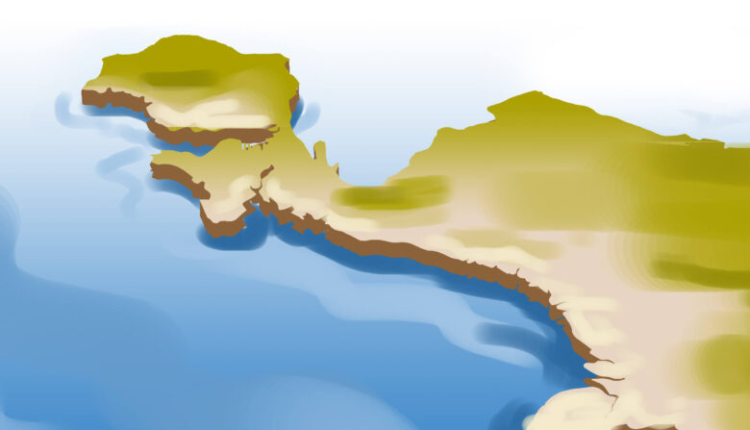By : Alvaro Hukubun )*
Cross-sector coordination is a very important key to accelerating Papua’s development in a much more holistic manner. Because with good coordination from various parties, determining the future policy direction for developing Bumi Cenderawasih can be much more complete for the benefit of local residents.
The Directorate General of Regional Development (Ditjen Bina Bangda) held a meeting with an agenda to expose the substance of the direction of development policy and also regional development in the New Autonomous Region (DOB) of Papua. Not only that, but on the same agenda, a Recommendation Document was also submitted for the direction of development and development policies for the new autonomous region in Papua from 2025 to 2045.
Restuardy Daud as Director General of Regional Development emphasized how important cross-sector collaboration is to be able to assist in formulating what kind of development policy direction will be which will later become the basis for the Regional Long Term Development Plan (RPJPD) for the Papua Special Region.
The recommendation document was submitted as an initial step in further exploring the potential of the region and also formulating a number of strategic steps for a sustainable future on Earth of Cenderawasih.
It cannot be denied that cross-sectoral collaboration or coordination, such as between the Central Government and the local Regional Government (Pemda) and other related stakeholders, is a very important key to determining the direction of development policy holistically.
Meetings were also held with relevant Ministries or Institutions as well as with the Regional Government in Papua with a focus on exploring various strategic issues and also identifying the direction of development policy, regional development and how the strategy will be implemented in the RPJPD that has been submitted.
It turned out that all the participants present, who also came from various sectors, made many very important contributions in drawing up an outline of policies that were able to accommodate various aspects of development in the Papua New Zealand Province, which is the government’s regional expansion project.
Some of these policy recommendations focus on several main aspects to be able to face the dynamics of development in the four New Autonomous Region Provinces. The first priority is related to increasing access and quality of basic services, especially in education and health, to further improve community welfare.
Solutions that are obtained in a sustainable manner in order to be able to overcome various kinds of potential security challenges that could occur are indeed very necessary. The step taken is to use an approach that increasingly pays attention to various cultural and religious values.
Furthermore, the existence of inequality in the development of human resources (HR) is also another focus with efforts to continue to maintain harmony between indigenous Papuans (OAP) and non-OAP parties. Then, when talking in an economic context, the strategy of identifying the development of agricultural and plantation areas is also considered very important to further empower the local economic potential of the community.
Efforts to protect forest areas and also conservation measures aim to further maintain the continuity of natural ecosystems, by emphasizing the importance of collecting data on customary and customary land to further ensure the various rights of local communities are guaranteed.
Furthermore, the development of land connectivity infrastructure will also continue to be encouraged to further support mobility and economic growth. Meanwhile, the use of natural mineral energy resources must also be carried out in a sustainable manner by continuing to involve original human resources (HR) from the four Papua Special Region Provinces.
There is great hope from various parties that the existence of the Papua Special Region development policy recommendation document will be able to become a reference in long-term development planning in the Bumi Cenderawasih region. Cross-sector collaboration and coordination must of course be established very strongly to further strengthen sustainability and also equal development in various remote areas.
On other occasions, the Government also continues to strive for good cross-sector coordination through the Director General of P2PM, Ministry of Health, who holds cross-sector and cross-program coordination meetings. This activity aims to create synergy, further strengthen communication and coordination between the center and regions in the implementation of all programs, especially in the health sector and is also able to facilitate regional governments in supporting the implementation of health system transformation in Papua.
This also includes holding various meetings as a means for monitoring and evaluating the program in order to be able to find out what obstacles and problems might arise so that in the future appropriate, correct, effective, efficient and sustainable problem solving can be carried out.
So in terms of accelerating development in Bumi Cenderawasih, the government is not only focusing on one sector, such as infrastructure, but it turns out to be much more than that, namely the focus being intensified is really on all sectors holistically. Therefore, cross-sectoral coordination for Papua’s development is a very important thing to do.
)* The author is a Papuan student living in Jakarta
